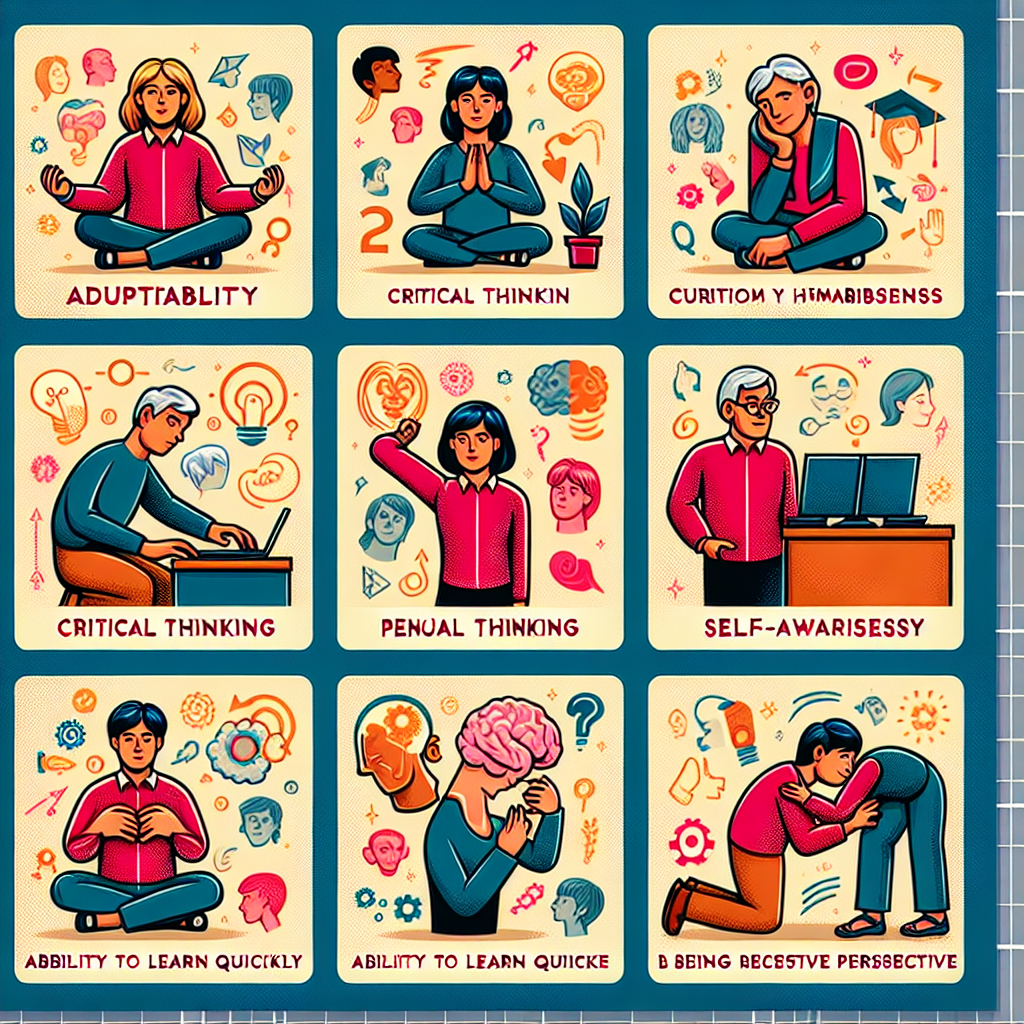10 Traits That Reveal True Intelligence
“`html
10 Traits That Reveal True Intelligence
Intelligence is often perceived as a measure of one’s ability to solve complex problems or score high on standardized tests. However, true intelligence encompasses a broader spectrum of traits that go beyond mere academic prowess. This article explores ten traits that reveal true intelligence, supported by research, examples, and insights.
1. Curiosity
Curiosity is the driving force behind learning and innovation. Intelligent individuals possess an insatiable desire to explore and understand the world around them. A study published in the Journal of Personality and Social Psychology found that curiosity is a significant predictor of academic performance and lifelong learning.
- Albert Einstein famously said, “I have no special talent. I am only passionately curious.”
- Curious people are more likely to engage in creative problem-solving and critical thinking.
2. Adaptability
Adaptability is the ability to adjust to new conditions and challenges. Intelligent individuals can navigate change with ease, demonstrating resilience and flexibility. A 2015 study in the journal Intelligence found that adaptability is closely linked to cognitive flexibility, a key component of intelligence.
- Adaptable people thrive in dynamic environments and are open to new ideas.
- They can pivot strategies when faced with obstacles, ensuring continued progress.
3. Emotional Intelligence
Emotional intelligence (EI) is the ability to recognize, understand, and manage one’s emotions and the emotions of others. High EI is a hallmark of true intelligence, as it facilitates effective communication and relationship-building. Research from TalentSmart suggests that EI accounts for 58% of performance in all types of jobs.
- Individuals with high EI are adept at conflict resolution and empathy.
- They can maintain composure under pressure, leading to better decision-making.
4. Open-Mindedness
Open-minded individuals are willing to consider new ideas and perspectives. This trait is essential for intellectual growth and innovation. A study in the journal Personality and Individual Differences found that open-mindedness is positively correlated with cognitive ability.
- Open-minded people are more likely to embrace diversity and foster inclusive environments.
- They are less prone to cognitive biases, allowing for more objective analysis.
5. Self-Discipline
Self-discipline is the ability to control impulses and delay gratification. It is a critical component of intelligence, as it enables individuals to focus on long-term goals. Research from the University of Pennsylvania highlights that self-discipline is a better predictor of academic success than IQ.
- Disciplined individuals can prioritize tasks effectively and manage time efficiently.
- They are less likely to succumb to distractions, ensuring consistent progress.
6. Critical Thinking
Critical thinking involves analyzing information objectively and making reasoned judgments. It is a cornerstone of true intelligence, enabling individuals to solve complex problems and make informed decisions. A report by the Foundation for Critical Thinking emphasizes the importance of critical thinking in education and professional settings.
- Critical thinkers question assumptions and evaluate evidence before drawing conclusions.
- They are skilled at identifying logical fallacies and biases in arguments.
7. Creativity
Creativity is the ability to generate novel ideas and solutions. It is a vital aspect of intelligence, as it drives innovation and progress. A study in the journal Creativity Research Journal found that creativity is linked to higher levels of cognitive functioning.
- Creative individuals excel in fields that require out-of-the-box thinking.
- They can connect seemingly unrelated concepts to produce unique outcomes.
8. Humility
Humility is the recognition of one’s limitations and the willingness to learn from others. Intelligent individuals understand that they do not have all the answers and are open to feedback. Research from the University of California, Berkeley, suggests that humility is associated with higher levels of cognitive ability.
- Humble people are more likely to seek knowledge and improve their skills.
- They foster collaborative environments by valuing diverse perspectives.
9. Persistence
Persistence is the determination to continue striving towards goals despite challenges. It is a key trait of intelligent individuals, as it ensures sustained effort and resilience. A study in the Journal of Applied Psychology found that persistence is a significant predictor of success in various domains.
- Persistent individuals are not easily discouraged by setbacks.
- They view failures as opportunities for growth and learning.
10. Lifelong Learning
Lifelong learning is the continuous pursuit of knowledge and skills. Intelligent individuals recognize the importance of staying informed and adaptable in a rapidly changing world. A report by the World Economic Forum highlights the growing need for lifelong learning in the modern workforce.
- Lifelong learners are proactive in seeking new experiences and challenges.
- They remain relevant and competitive by continuously updating their skill sets.
Conclusion
True intelligence is a multifaceted construct that extends beyond traditional measures of cognitive ability. The ten traits discussed in this article—curiosity, adaptability, emotional intelligence, open-mindedness, self-discipline, critical thinking, creativity, humility, persistence, and lifelong learning—offer a comprehensive view of what it means to be truly intelligent. By cultivating these traits, individuals can enhance their intellectual capabilities and achieve greater success in both personal and professional endeavors.
“`




